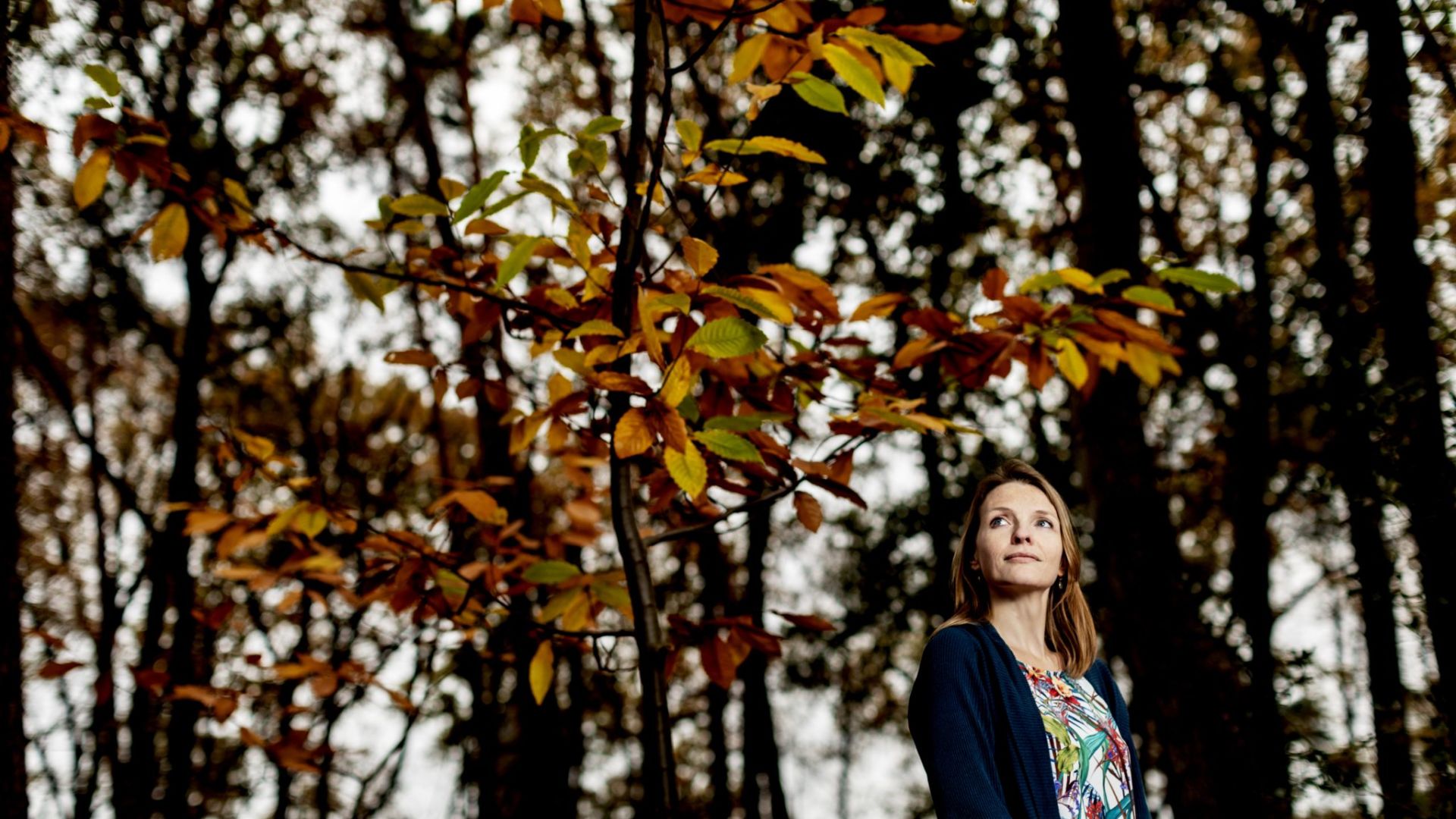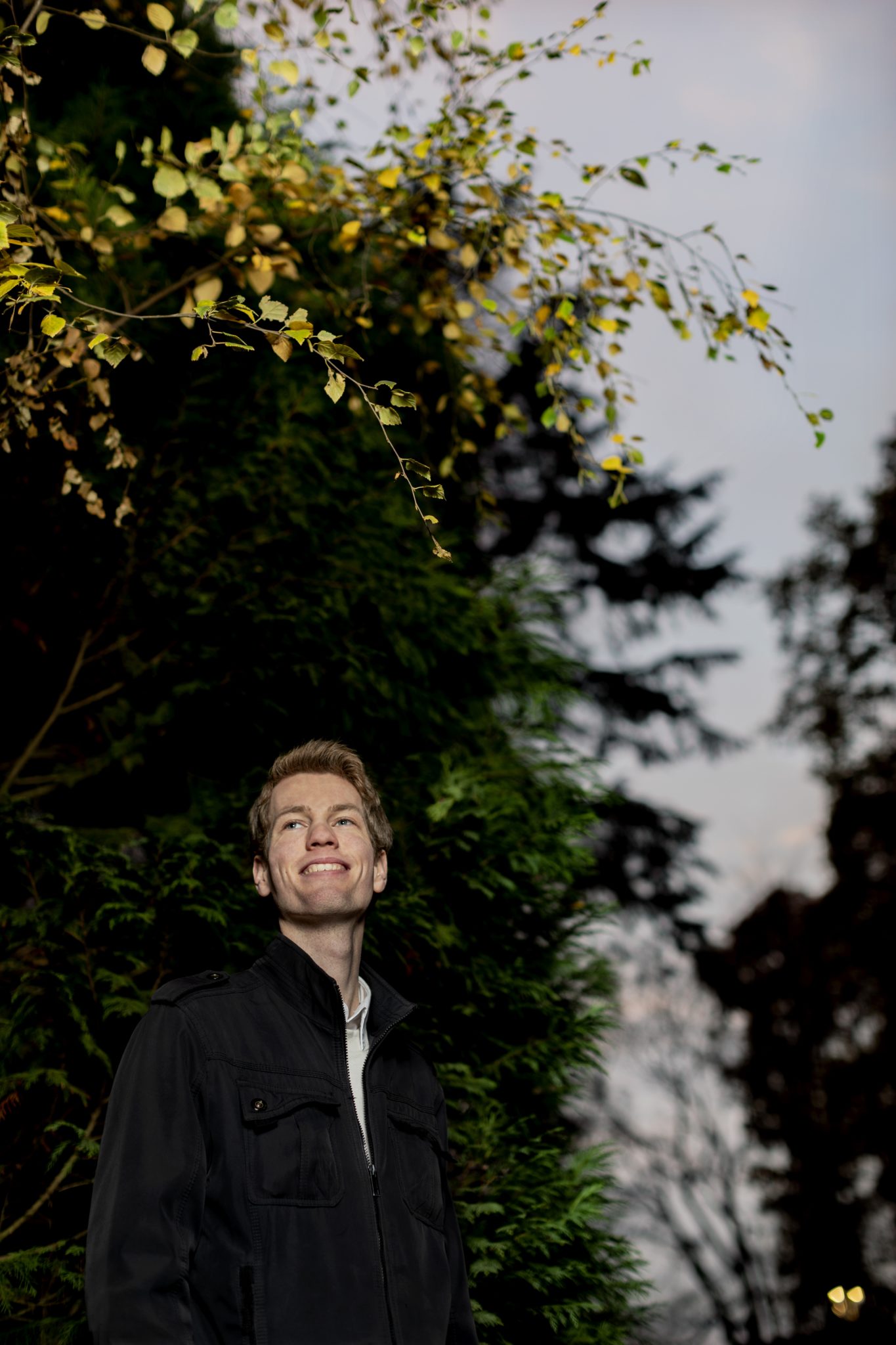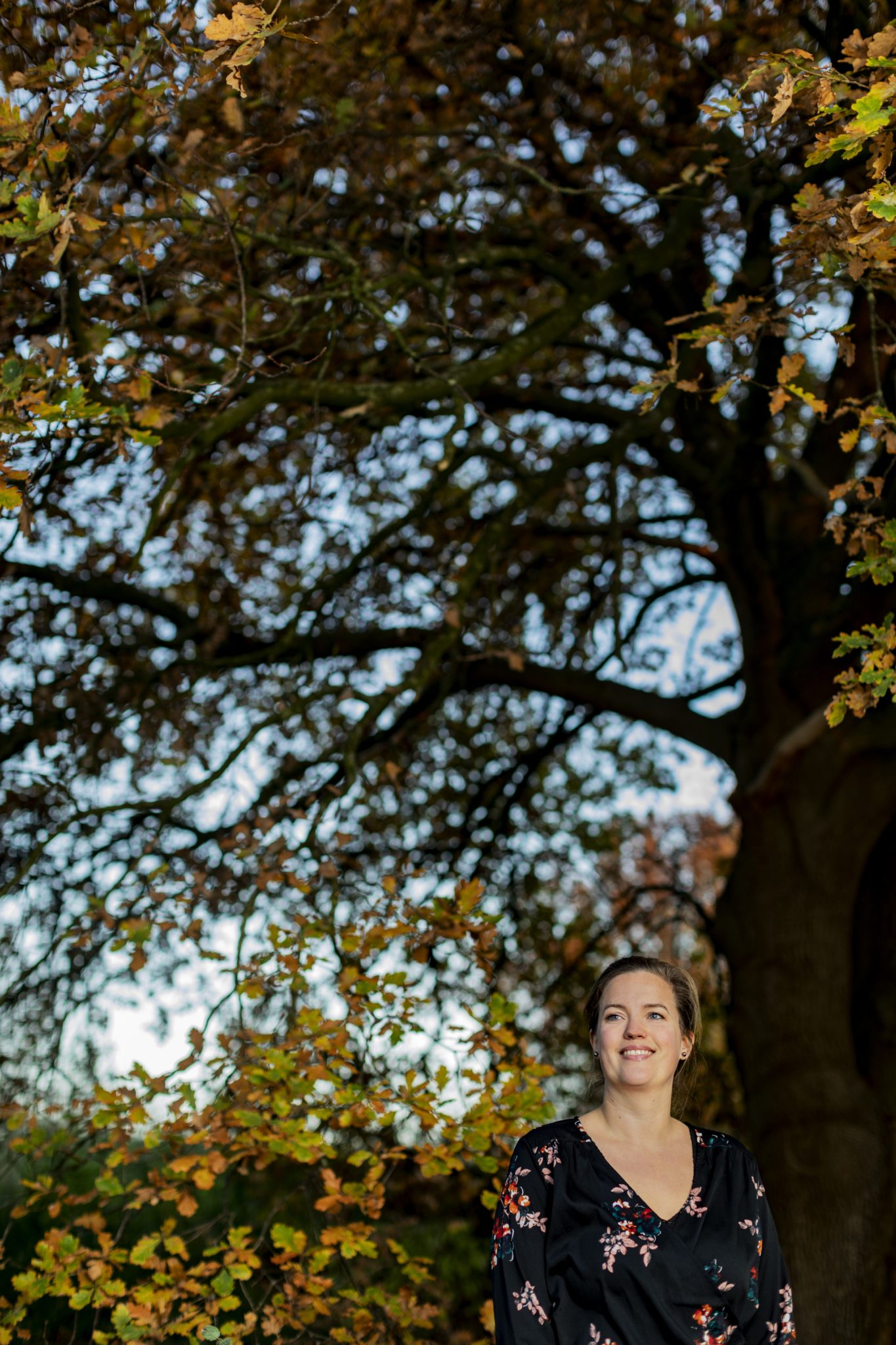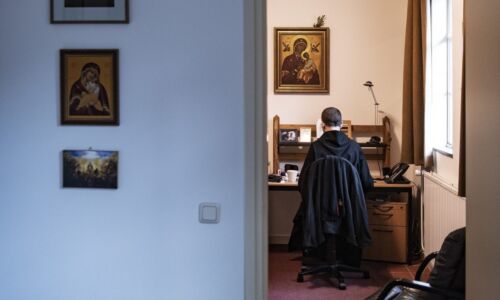The power of listening
-
 Francine Wildenborg. Foto: Duncan de Fey.
Francine Wildenborg. Foto: Duncan de Fey.
To truly be there for another person. This is what Francine Wildenborg, Wouter Derks and Ninke Luijters are learning in their Spiritual Care programme. Once they have completed their Master’s programme, they will be able to help people with existential questions concerning life and death. ‘People sometimes share things they’ve never told anyone before.’
Francine Wildenborg (36) from Utrecht: ‘I want to offer more than an interview’
‘Spiritual Care has traditionally been a profession practiced by ministers. The pastor would come to a person’s deathbed to talk about the afterlife or faith in God. Society has changed, fewer people go to church. I’m training to become a spiritual care counsellor without a religious background.
In my previous work as journalist for the Algemeen Dagblad I wrote a lot about healthcare. My articles often focused on illnesses and treatments, but rarely on how to deal with an unresolvable situation. Who will take care of you if you contract an incurable disease, become handicapped, or suffer a loss? Yet these were the stories that touched me most. As a journalist, there isn’t much you can do other than nod your head and write what people tell you. In my role of spiritual care counsellor I have the opportunity for longer and deeper contact, and I have tools at my disposal to help people.
‘Who will take care of you if you contract an incurable disease, or suffer a loss?’
In the study programme I learn interview techniques, somewhat similar to journalistic interviews. It’s important to ask good questions and to listen. The interviews are confidential; people sometimes share things they’ve never told anyone before. Painful matters, or things they’re ashamed of. This can be a great relief and make way for a different mindset. Together with the person, you can help him or her find an experience or metaphor that offers them support.
As part of my study programme I now read the Bible and the Quran. You have to understand what Jesus means to a Christian and how important the Prophet Muhammad is in the life of a Muslim. I don’t have to pray along with people, but I need to understand their rituals.
After my studies I hope to work part-time in a hospital and part-time in people’s homes. As of 1 January, the Minister of Health is making € 25 million available for spiritual care in the home, which is really good news!’

Wouter Derks (20) from Dongen: ‘People say I’ve found my calling’
‘A few years ago I came out of the closet as a Christian. My parents are religious, both of them theologians, but they’ve always allowed me a lot of freedom. For a long time, I wasn’t sure where I stood. I’ve always been interested in faith-related and existential questions. Why are we on Earth? Why do I get out of bed every morning? Sometimes I have encounters that are so moving, I think of them as divine. Compare it to love. Everyone knows it’s real, but its existence is hard to prove.
‘My father is a pastoral worker and sometimes lets me read his sermons’
I’m currently completing the higher professional education Bachelor’s programme in Spiritual Care in Utrecht and following the pre-Master’s programme at Radboud University. If you want to work in an academic hospital, you need an academic degree. I really enjoy the higher professional education programme because I really need some practical skills. Last year I was already allowed to do an internship at a hospital.
People I know sometimes say: ‘You’ve really found your calling.’ I wouldn’t use the word ‘calling’ myself, but I understand what they mean. A spiritual care counsellor is a confidante. People struggle with something, and you have the honour of listening to them. I find it amazing to be able to truly be there for someone. Already as a child I knew I wanted to do something for society.
My father is a pastoral worker and sometimes lets me read his sermons. This leads to some great conversations. As a spiritual care counsellor, I won’t only be there for believers, but for anyone facing existential questions or questions about purpose. I’m aware of the fact that I’m still quite young, and that I don’t have much life experience. I can only try to grow further as a person; it’s important in this work. According to my internship supervisor at the hospital I’m good at creating an atmosphere in which people feel heard.’

Ninke Luijters (32) from Cuijk: ‘It’s my dream to go to Congo’
‘Since I turned sixteen it’s been my dream to join an NGO and go to Congo to help war victims. But our children are still young, and this isn’t the right time. A topic that keeps me busy is moral injury (for example towards veterans, Eds.). Attentively listening to the experiences of people who have experienced a traumatic event is essential to help them to process it. I believe the essence of the work of a spiritual care counsellor lies in listening to someone without prejudice.
‘We learn a lot about Islam and Judaism, which is very useful’
I worked for more than ten years as a nurse in a hospital, primarily in obstetrics. There I also organised memorial services for parents who had lost a baby. In this role I noticed how important it is to give the person in front of you recognition and to take them seriously. A mother who had lost two babies once said to me: ‘At the other hospital I felt so unheard and misunderstood.’ This touched me. It had made an already intensely sad situation unnecessarily difficult for her.
I’m a good listener and I’ve decided to make this my life’s work. I was personally raised as a Catholic, but I don’t think you need a religious background to be a good spiritual care counsellor. In the study programme we learn a lot about Islam and Judaism, which is very useful. From my own Western, Christian identity, it’s easy to make mistakes. For example, in the delivery room, it’s good to know that according to tradition a Muslim father wants to whisper a prayer in the ear of his new-born baby. Where possible, we should make room for this.
As a spiritual care counsellor, I’d like to work with a therapy dog, and I’m figuring out how to make this possible.’



